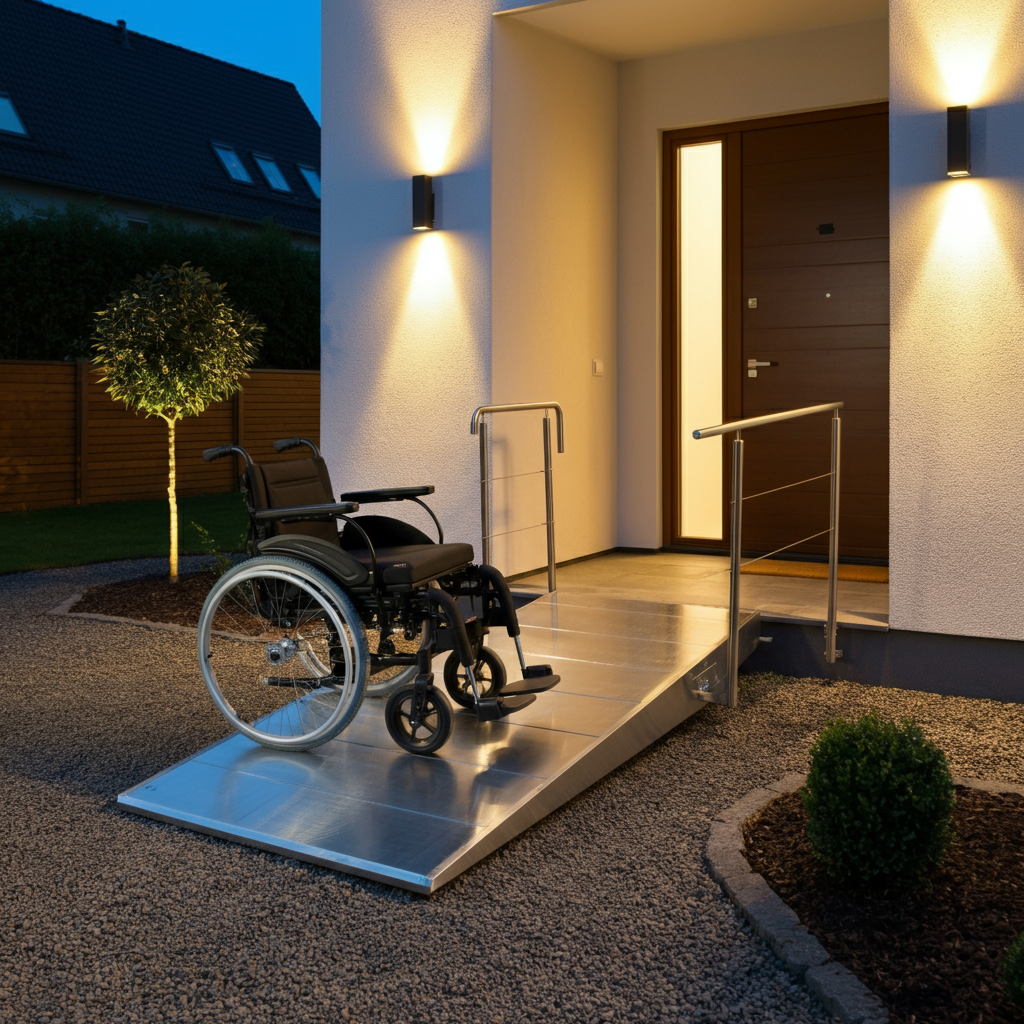For individuals with mobility challenges, wheelchair ramps are essential for maintaining independence and accessibility. But if you’re on Medicare, you might be wondering: Does Medicare cover the cost of wheelchair ramps? The answer isn’t straightforward, but we’re here to break it down for you.
What Does Medicare Cover?

Medicare is designed to cover medical services and equipment that are deemed medically necessary. However, when it comes to home modifications like wheelchair ramps, Medicare typically does not provide coverage. Even if a healthcare provider determines that a ramp is necessary for your mobility, it’s unlikely to be covered under standard Medicare benefits.
That said, there are some exceptions. If you believe a wheelchair ramp is essential for your health and safety, it’s worth discussing with your doctor and Medicare to explore your options. A written prescription from your healthcare provider is a good starting point.
Learn More About Coverage With Our Free Medicare Course
What About Threshold Ramps?
Threshold ramps are smaller ramps designed to bridge gaps like raised doorways or small curbs. While they’re incredibly useful for improving accessibility, they are also not typically covered by Medicare. Medicare focuses on durable medical equipment (like wheelchairs and walkers) rather than home modifications.
Step Ramps vs. Threshold Ramps: What’s the Difference?
Understanding the type of ramp you need is important:
- Step Ramps: Larger ramps designed to help individuals navigate multiple steps or higher obstacles, such as the entrance to a home.
- Threshold Ramps: Smaller ramps meant to bridge minor gaps, like a raised doorway or a single step.
While neither is usually covered by Medicare, choosing the right ramp for your needs can make a big difference in your daily life.
Other Types of Wheelchair Ramps
There are several types of wheelchair ramps available, each suited to different needs:
- Portable Ramps: Lightweight and easy to move, ideal for temporary use.
- Modular Ramps: Semi-permanent ramps that can be customized to fit your home.
- Custom-Built Ramps: Permanent ramps designed specifically for your space.
While Medicare coverage is limited, understanding your options can help you make informed decisions. You may also want to explore alternative funding sources, such as local assistance programs or nonprofit organizations.

How Much Does a Wheelchair Ramp Cost?
The cost of a wheelchair ramp can vary widely depending on its size, materials, and complexity. On average, you can expect to pay anywhere from a few hundred dollars for a portable ramp to several thousand dollars for a custom-built ramp. If Medicare doesn’t cover the cost, consider getting quotes from reputable contractors and looking into financial assistance programs.
Does Medicare Cover Wheelchair Accessories?
While Medicare doesn’t usually cover ramps, it does cover some wheelchair accessories if they are deemed medically necessary. These might include:
- Cushions
- Armrests
- Other add-ons that improve comfort and usability
Be sure to consult with your doctor and Medicare to determine what’s covered.
What Are Your Options?
If Medicare doesn’t cover your wheelchair ramp, don’t lose hope. Here are some alternative options to consider:
- Local Assistance Programs: Many communities offer grants or funding for home modifications.
- Nonprofit Organizations: Groups like Rebuilding Together or Habitat for Humanity may provide assistance.
- State Medicaid Programs: If you qualify for Medicaid, some programs may cover home modifications.
Why Accessibility Matters
Maintaining mobility and independence is crucial for individuals with disabilities or mobility challenges. While Medicare’s coverage for wheelchair ramps is limited, there are other ways to ensure your home is safe and accessible. The key is to explore all your options and work with professionals who can guide you through the process.
Need Help Navigating Medicare?
Understanding Medicare can be overwhelming, but you don’t have to do it alone. The Mair Agency is here to help. With over 30 years of experience, we specialize in making Medicare simple and stress-free.
- Check out our Medicare for Beginners guide to learn the basics.
- Watch our free Medicare video course for a step-by-step walkthrough.
- Attend a free Medicare seminar to get personalized advice from experts.
Visit the Mair Agency today to explore your options and get the guidance you need to make informed decisions about your healthcare.
Learn More About Coverage With Our Free Medicare Course




